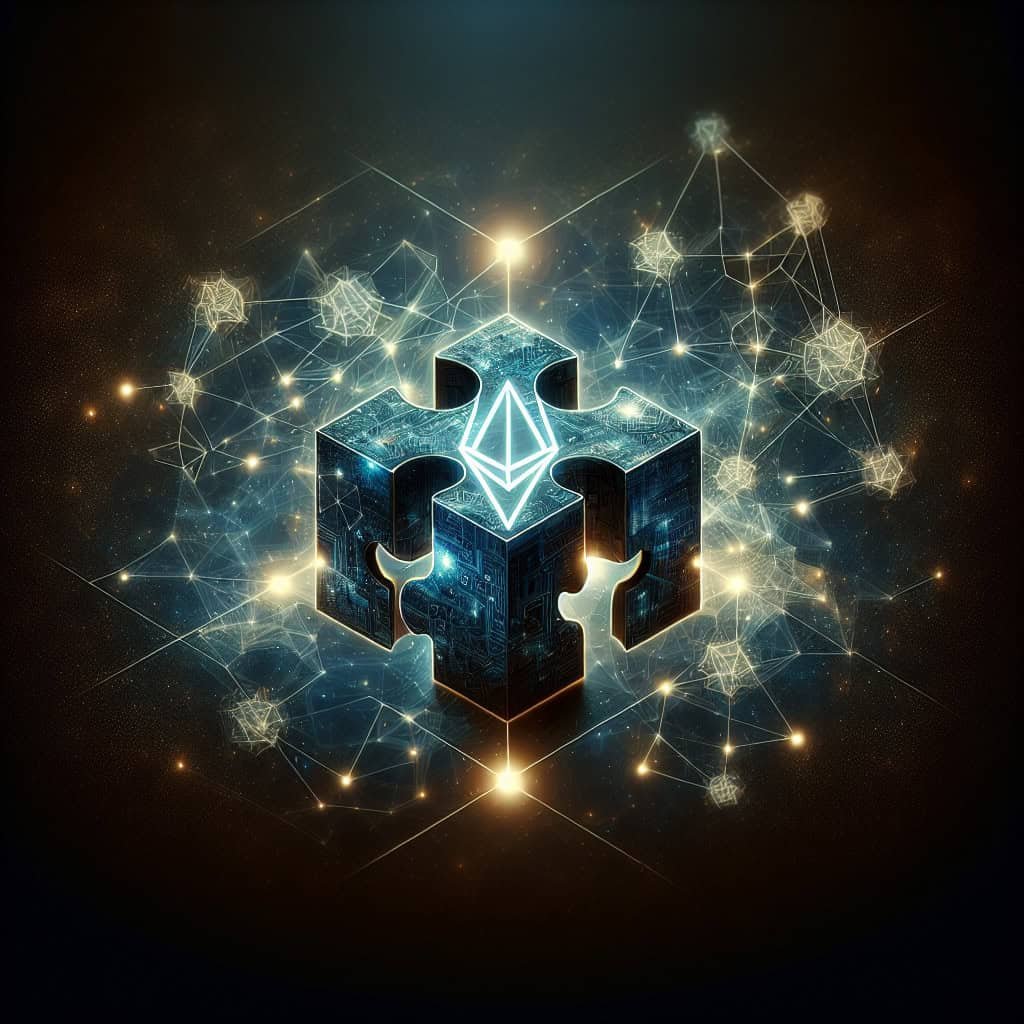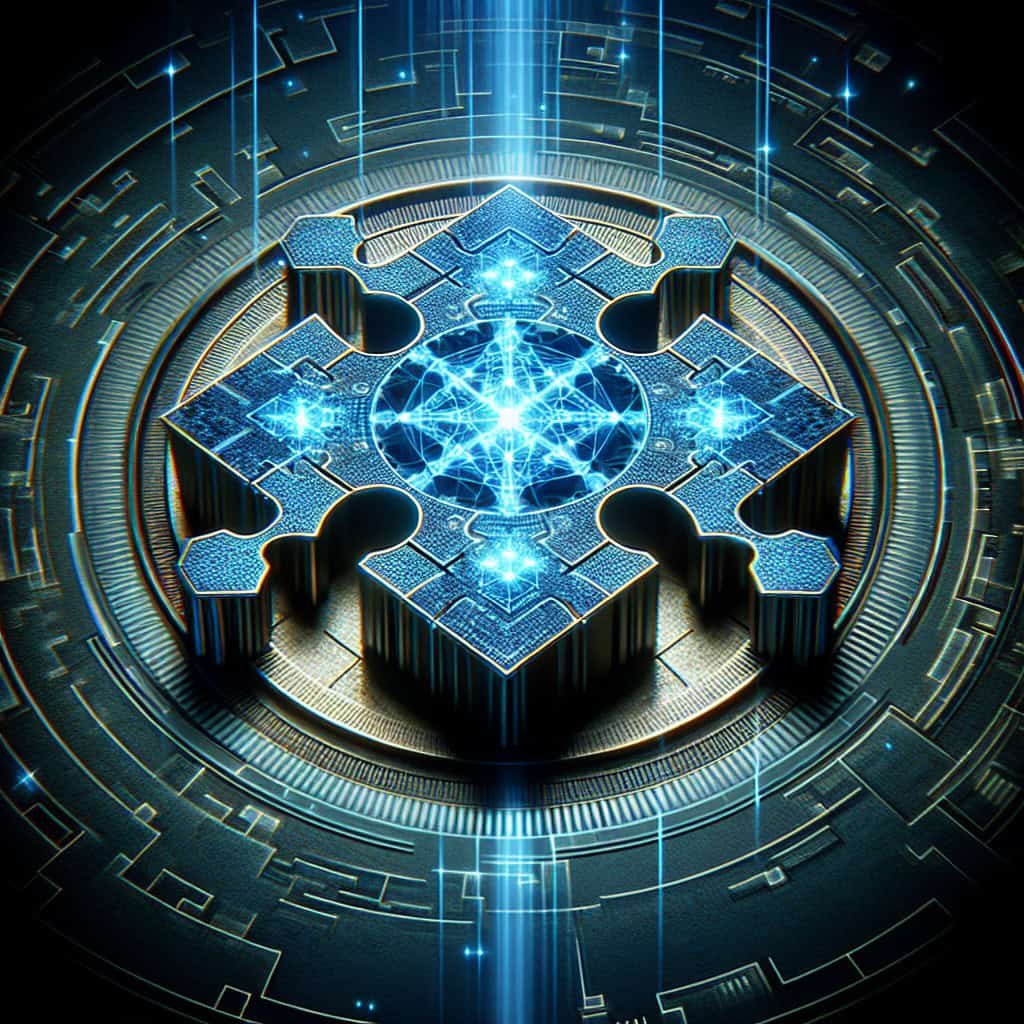Have you ever wondered about the concept of Ontology (ONT)? If so, you’re in for an enlightening experience. Ontology (ONT) is a remarkable digital currency that holds immense potential for transforming the world of decentralized finance. With its innovative approach and cutting-edge technology, Ontology (ONT) aims to revolutionize the way we transact, authenticate identities, and store data securely. By exploring the fascinating world of Ontology (ONT), you’re bound to discover a whole new realm of possibilities.

What is Ontology (ONT)?
Ontology (ONT) is a distributed trust network that combines blockchain technology and decentralized identity verification. It provides a framework for building trust in a secure and scalable manner, enabling businesses to collaborate and interact with each other while maintaining privacy and security.
A brief introduction to Ontology
Ontology aims to solve the common issues faced by traditional centralized systems, such as data silos, lack of interoperability, and limited trust. By utilizing a distributed ledger and a decentralized identity verification system, Ontology provides an open and transparent platform where individuals and organizations can interact and transact with each other without relying on a central authority.
The purpose of Ontology
The main purpose of Ontology is to enable trust among various entities by providing a secure and decentralized platform for identity verification, data exchange, and collaboration. It aims to create a trust ecosystem that can be applied to various industries such as finance, healthcare, supply chain, and more. With the use of smart contracts and consensus mechanisms, Ontology ensures that the transactions and interactions on its platform are reliable, transparent, and secure.
The Technology behind Ontology
Blockchain technology in Ontology
Ontology leverages blockchain technology to provide a transparent and tamper-proof ledger of transactions. By using a distributed ledger, where transactions are recorded across multiple nodes in the network, Ontology ensures that data is resilient to single points of failure and is highly secure. This decentralized approach also allows for more efficient and cost-effective transactions, removing the need for intermediaries and reducing transaction costs.
Smart contracts on Ontology
Smart contracts are an integral part of the Ontology platform, enabling automated and self-executing agreements. These contracts are written in code and contain predefined rules and conditions that dictate how transactions are performed. By utilizing smart contracts, Ontology enables faster and more secure transactions, eliminating the need for manual intervention and reducing the risk of errors or fraud.
Consensus mechanism in Ontology
Ontology utilizes a delegated proof-of-stake (DPoS) consensus mechanism to achieve network consensus. DPoS allows network participants to elect a number of trusted nodes, known as block producers, who are responsible for validating transactions and maintaining the integrity of the blockchain. This consensus mechanism ensures fast transaction confirmations and a high level of security, as only trusted nodes are involved in the consensus process.
Features and Benefits of Ontology
Interoperability of Ontology
One of the key features of Ontology is its interoperability, which enables different blockchains and systems to communicate and interact with each other. Ontology achieves this by providing a set of standardized protocols and frameworks that facilitate seamless data exchange and collaboration between different networks. This interoperability allows businesses and organizations to leverage the benefits of multiple blockchains and systems, enhancing efficiency and reducing costs.
Scalability of the Ontology platform
Scalability is a crucial factor for the success of any blockchain platform, and Ontology addresses this by utilizing a unique sharding technique called sharding. Sharding involves dividing the blockchain into smaller partitions called shards, which can process transactions independently. This parallel processing capability significantly increases the throughput and capacity of the Ontology platform, allowing it to handle a large number of transactions simultaneously.
Privacy and security on Ontology
Privacy and security are of paramount importance in any trust ecosystem, and Ontology prioritizes the privacy and security of its users’ data. With the use of decentralized identity verification and encryption techniques, Ontology ensures that users have control over their own data and can choose what information to share with others. Additionally, the distributed ledger and consensus mechanisms employed by Ontology provide a high level of security, making it extremely difficult for unauthorized parties to tamper with the data.
Ontology Token (ONT)
Overview of the ONT token
The ONT token is the native cryptocurrency of the Ontology platform. It serves as a means of exchange within the ecosystem and is used to pay for transaction fees, access services, and participate in governance activities. ONT tokens can be obtained through token sales, airdrops, or by participating in Ontology’s consensus mechanism. The total supply of ONT tokens is fixed at 1 billion.
Token utility and usage on Ontology
ONT tokens have various utilities within the Ontology ecosystem. They can be used to access and utilize decentralized applications (DApps) built on the Ontology platform, pay for transaction fees, participate in governance activities such as voting on proposals and protocol upgrades, and stake tokens to earn rewards. The ONT token plays a crucial role in incentivizing network participants and ensuring the smooth operation and growth of the Ontology ecosystem.

Ontology Mainnet
Transition from prototype to mainnet
After extensive development and testing, Ontology successfully launched its mainnet in June 2018. The transition from prototype to mainnet marked a significant milestone in the development of the Ontology platform, as it showcased the platform’s readiness for real-world applications. The mainnet launch introduced several new features and improvements that enhanced the performance, scalability, and security of the Ontology ecosystem.
Mainnet features and improvements
With the launch of the mainnet, Ontology introduced several new features and improvements, including enhanced transaction processing capabilities, improved consensus mechanisms, and upgraded security measures. The mainnet also provided developers with a more stable and reliable environment for building and deploying decentralized applications on the Ontology platform, thereby encouraging the growth of the ecosystem and fostering innovation.
Migration process for users
During the transition from the prototype to the mainnet, Ontology provided a smooth and seamless migration process for users. Users were given the opportunity to convert their tokens from the Ethereum blockchain to the mainnet, ensuring the continuity of their participation in the Ontology ecosystem. The migration process was designed to be user-friendly and secure, providing detailed instructions and support to users throughout the entire process.
Partnerships and Collaborations
Key partnerships of Ontology
Ontology has established strategic partnerships with various organizations and projects, both within the blockchain industry and outside of it. Some of the key partnerships of Ontology include collaborations with NEO, the leading blockchain platform, and Hyperledger, an open-source blockchain project. These partnerships enable Ontology to leverage existing resources, expertise, and networks, and foster collaboration and innovation within the blockchain ecosystem.
Collaborations with other blockchain projects
In addition to its key partnerships, Ontology actively collaborates with other blockchain projects to explore and develop new use cases and solutions. By partnering with complementary projects, Ontology aims to create a synergistic ecosystem that can address the diverse needs of different industries and domains. These collaborations not only contribute to the growth and development of the Ontology ecosystem but also promote interoperability and collaboration within the broader blockchain community.
Government and institutional partnerships
Ontology has also established partnerships with various government agencies and institutions around the world. These partnerships aim to explore the potential of blockchain technology in areas such as identity management, supply chain management, and governance. By collaborating with governments and institutions, Ontology can leverage their expertise and credibility to drive the adoption of blockchain technology and promote greater transparency, efficiency, and trust in various sectors.

Use Cases of Ontology
Identity verification and management
Ontology provides a robust framework for identity verification and management, allowing individuals and organizations to establish and manage their digital identities securely. By utilizing decentralized identity verification systems, Ontology enables users to control their own data and share it with others in a secure and privacy-enhancing manner. This has applications in areas such as Know Your Customer (KYC) processes, secure access to digital services, and identity management in healthcare systems.
Supply chain management
Ontology’s blockchain technology can be applied to supply chain management to enhance transparency, traceability, and efficiency. By utilizing smart contracts and a decentralized ledger, Ontology enables secure and tamper-proof record-keeping of goods and transactions in the supply chain. This improves visibility into the supply chain, reduces the risk of counterfeit products, and streamlines processes such as inventory management, logistics, and payment settlements.
Data sharing and trust
Data sharing and trust are critical for businesses and organizations to collaborate effectively. Ontology provides a secure and transparent platform for data sharing, ensuring that data is reliable, tamper-proof, and can be audited by authorized parties. This promotes greater trust between participants and enables efficient data exchange and collaboration. Use cases include data marketplaces, data sharing among healthcare providers, and secure sharing of financial information between institutions.
Ontology Ecosystem
Ontology ecosystem participants
The Ontology ecosystem comprises various participants, including developers, enterprises, individual users, and governing entities. Developers contribute to the ecosystem by building decentralized applications (DApps) and smart contracts on the Ontology platform, while enterprises utilize Ontology’s infrastructure and services to enhance their operations and business processes. Individual users play a vital role in the ecosystem by participating in the network consensus and utilizing the services and applications built on Ontology. Governing entities, such as the Ontology Foundation, oversee the governance and development of the ecosystem.
DApps and projects built on Ontology
Numerous decentralized applications (DApps) and projects have been built on the Ontology platform, showcasing the versatility and scalability of Ontology’s infrastructure. These DApps span various industries such as finance, healthcare, gaming, and supply chain management, providing innovative solutions and services to users. Some notable projects on Ontology include decentralized finance (DeFi) platforms, digital identity solutions, and asset tokenization projects.

Current and Future Developments
Recent updates and milestones
Ontology has continuously been updating and improving its platform, introducing new features and functionalities to enhance the user experience and expand the capabilities of the ecosystem. Recent updates include the integration of cross-chain functionality, the introduction of decentralized identity solutions, and the expansion of the Ontology ecosystem through strategic partnerships and collaborations. These updates and milestones demonstrate Ontology’s commitment to innovation and its dedication to providing cutting-edge solutions to its users.
Roadmap for future development
Ontology has a comprehensive roadmap for future development, outlining its plans to further enhance the platform’s scalability, privacy, and interoperability. Key areas of focus include the integration of layer 2 solutions to improve transaction throughput, the development of privacy-preserving technologies to enhance data security, and the continued expansion of the Ontology ecosystem through strategic partnerships and collaborations. Ontology aims to become a leading blockchain platform, driving the adoption and integration of blockchain technology in various industries.
Conclusion
Ontology is a groundbreaking platform that utilizes blockchain technology and decentralized identity verification to create a trust ecosystem that fosters collaboration and innovation. The platform’s unique features such as interoperability, scalability, and privacy enable businesses and organizations to securely exchange data, transact, and interact without the need for intermediaries. With its robust infrastructure, strategic partnerships, and focus on real-world use cases, Ontology has the potential to revolutionize various industries and drive the adoption of blockchain technology on a global scale.


